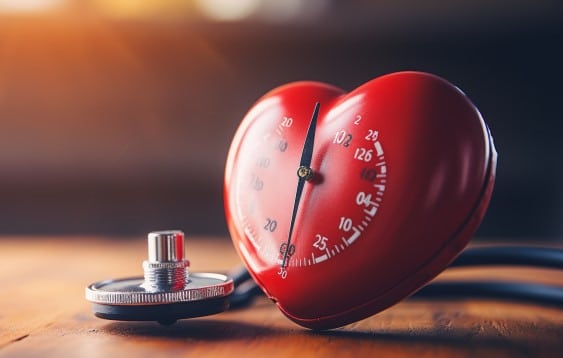A recent study of older adults with hypertension suggests that cannabis could be useful in lowering blood pressure.
Researchers from Israel’s Ben-Gurion University of the Negev published the results in the European Journal of Internal Medicine in January. The study looked at 26 hypertension patients with medical cannabis prescriptions. Researchers monitored their rates of use and their blood pressure over the course of three months.
“Amongst older adults with hypertension, cannabis treatment for three months was associated with a reduction in 24-hours systolic and diastolic blood pressure values with a nadir at three hours after cannabis administration,” the study concluded.
They found that blood pressure was overall lower in those with hypertension who were consistently using medical cannabis. Researchers noted that “no significant changes were seen in the different metabolic parameters assessed by blood tests, anthropometric measurements, or ECG exam”. However, the percentage of people whose blood pressure levels dipped did increase.
“The proportion of normal dippers changed from 27.3 percent before treatment to 45.5 percent afterward,” the study said.
“Medical cannabis use is increasing rapidly in the past several years, with older adults being the fastest growing group,” it continued. “Nevertheless, the evidence for cardiovascular safety of cannabis use is scarce. The aim of this study was to assess the effect of cannabis on blood pressure, heart rate, and metabolic parameters in older adults with hypertension.”
Better quality of life for colitis patients
Israeli researchers found that patients with mild to moderate ulcerative colitis reported increased quality of life after inhaling herbal cannabis. Patients inhaled either cannabis cigarettes containing 16 percent THC or a placebo containing virtually no THC.
The 32 participants in the eight-week trial also received their standard medications. Publishing their data in the journal PLOS ONE, the researchers reported that cannabis helped improve clinical symptoms. These included abdominal pain and number of bowel movements per day. “We also observed a significant improvement in quality of life, general health, appetite, libido, concentration, and patient satisfaction with the treatment.”
The study’s authors called for further research. “This preliminary observation requires additional investigation in larger and longer intervention clinical studies,” they wrote. “Such studies will enable us to determine whether cannabis has mainly a symptom relieving role or a more specific anti-inflammatory therapeutic effect.”
Beneficial effect for Parkinson’s
A recent German study found that 61 percent of Parkinson’s disease patients who used medical cannabis reported a beneficial clinical effect.
The Journal of Parkinson’s Disease, published the study this month. Researchers at University Medical Center Hamburg-Eppendorf Department of Neurology used questionnaires distributed nationwide via the membership journal of the German Parkinson Association. They analyzed more than 1,300 questionnaires for the study. The study found that 8.4 percent of Parkinson’s patients used cannabis to manage their symptoms. (An additional 65% of Parkinson’s patients included in the study expressed interest in using medical cannabis.)
Among patients who used oral CBD, 54 percent reported symptom improvement. Of those who used inhaled THC, 68 percent reported improvement. Compared to oral CBD, THC inhalation was more frequently reported to reduce Parkinson’s-associated muscle loss and stiffness.
















